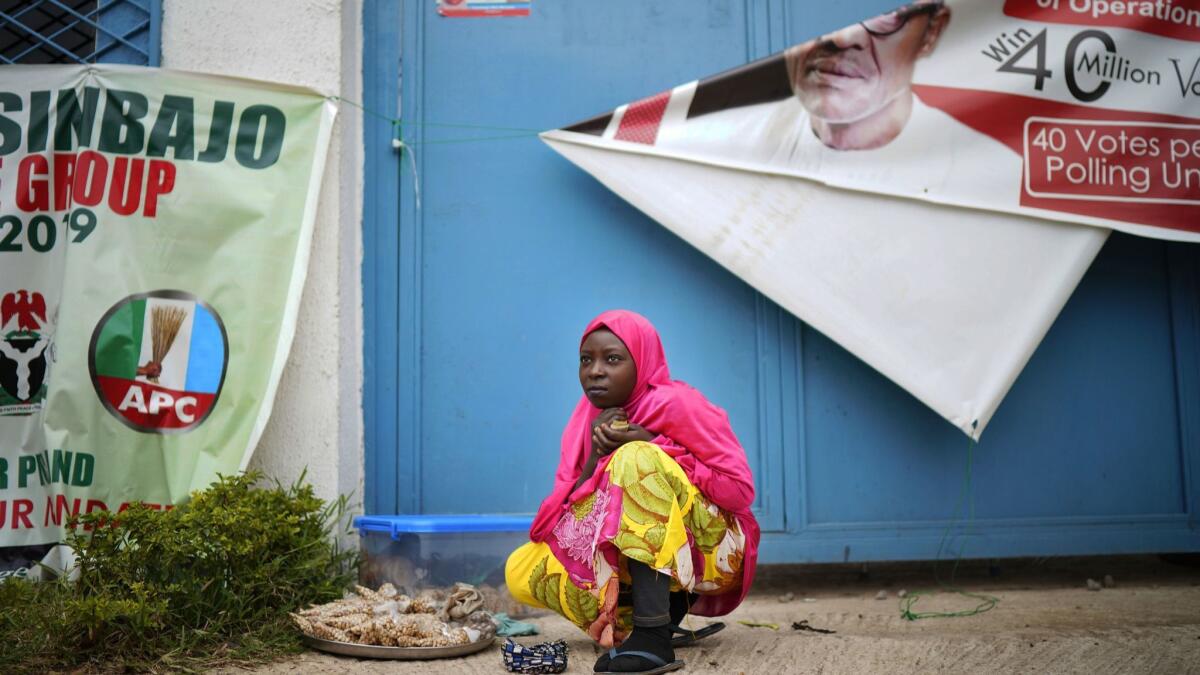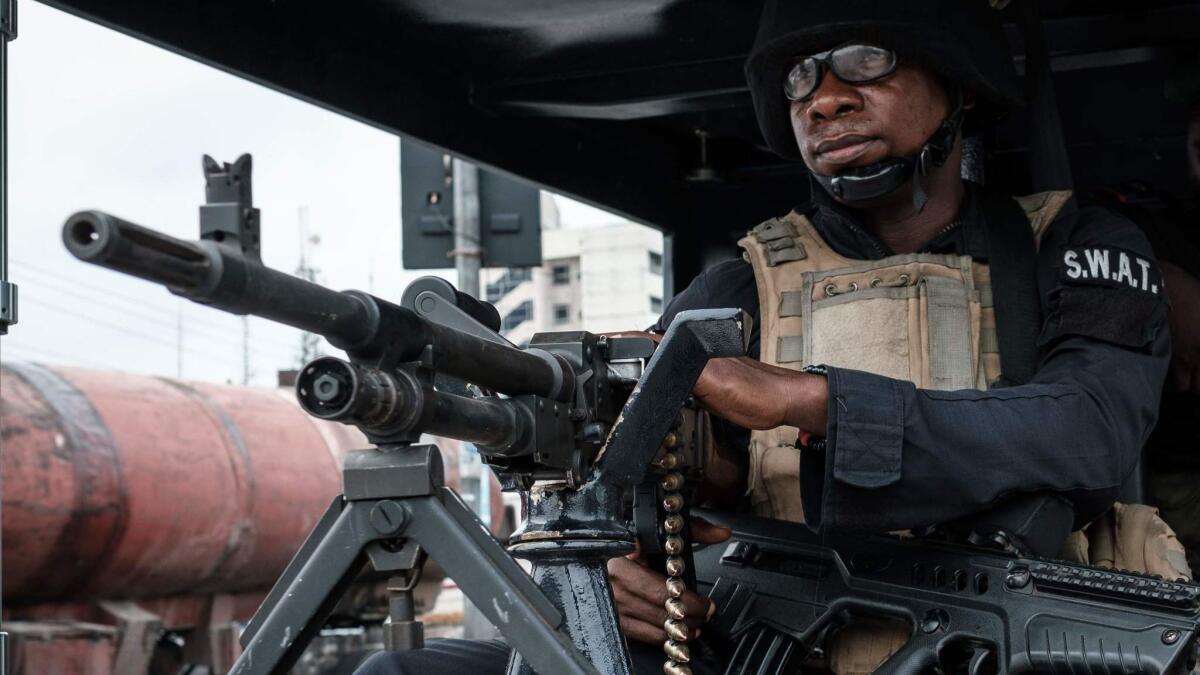Nigerian president declared winner after a troubled election

- Share via
Reporting from KANO, Nigeria — Nigerian President Muhammadu Buhari has been declared the winner of a troubled election in Africa’s most populous country.
The former military dictator won easily, by nearly 4 million votes, despite widespread criticism that he had not delivered enough on his promises to tackle corruption, widespread insecurity and an economy limping from recession.
Top opposition challenger Atiku Abubakar made sweeping pledges to lift millions of people out of poverty, but in the end many Nigerians were wary of past corruption allegations and his proposal to privatize the state oil company in Africa’s largest producer of crude.
The official declaration Wednesday morning follows an election marred by a last-minute postponement and deadly violence.
In a last-ditch effort to stop the official declaration, Abubakar demanded a halt to the proceedings, claiming that data from smart card readers used in Saturday’s election had been manipulated. His party called for fresh elections in four states.
Buhari’s party dismissed the claim. “Let this nation move forward,” said Babatunde Fashola, the campaign’s director for election monitoring.
As state-by-state vote announcements ended, Buhari led by more than 3.9 million votes in a race once described as too close to call. To secure the presidency in this nation of 190 million people, a candidate must win a majority of overall votes as well as at least 25% of the vote in two-thirds of the states.
The vote suffered from a surprise weeklong postponement and significant delays in the opening of polling stations. The electoral commission postponed it just hours before polls were to open Feb. 16, citing logistical issues.
Then on Saturday, the late arrival of election officials and materials, as well as malfunctions and harassment, caused voting in parts of the country to continue into Sunday.
The delays risked “undermining citizen confidence in elections and disenfranchising voters,” the U.S.-based International Republican Institute and National Democratic Institute observers said. European Union observers said many people were discouraged from voting.
At least 53 people were killed in voting-related violence over the weekend, according to the Nigerian analysis group SBM Intelligence.

The death toll rose after an attack shortly before polls opened and claimed by the Islamic State West Africa Province extremist group in the northeast proved deadlier than first reported, with at least 17 people killed.
Abubakar, a billionaire former vice president who made sweeping campaign promises to “make Nigeria work again,” hasn’t made a public appearance since the vote.
It remains to be seen whether he will follow through on pledges to accept a loss, or challenge the results. A former U.S. ambassador to Nigeria, John Campbell, said the troubled election has given the candidates grounds to go to the courts. That route could take months.
In Kano, the heart of the country’s Muslim north, there was relief that the sensitive region appeared to have avoided the deadly violence that occurred in other areas.
“Well, we thank God that at least we finished this safely, without any hitches,” the state electoral commissioner, Riskuwa Shehu, said minutes before carrying results to the capital.
Turnout appeared to be lower than expected, Shehu said, pointing to a number of factors, including the fear of possible violence after heated campaigning. The “disappointment” of a weeklong postponement probably also played a role, he said.
Nigeria has an estimated 73 million voters. The YIAGA Africa project, which deployed more than 3,900 observers, estimated turnout at 36% to 40%, down from 44% in 2015.
Nigerians’ reactions to Buhari’s victory were mixed.
“Alhamdulillah,” said 36-year-old Umar Ibrahim, using the Arabic phrase for “praise be to God” as he chatted with clients about politics at his tiny shop in Kano. “Up to now they say Buhari is leading, far. He is a good elder.”
Grace Eje, a 25-year-old domestic worker, had held out hope for Abubakar, saying Nigeria needed someone new after Buhari. “No money, no work, no help from him,” she said of the president, grimacing.
A specter hangs over Nigeria’s presidential election: Hunger »
Many Nigerians have prayed for peace. They were surprised in 2015 when President Goodluck Jonathan conceded before official results were announced, giving victory to Buhari, who pulled off the first defeat of an incumbent by the opposition in the country’s history. Some are worried that such a concession appears unlikely this time.
More to Read
Sign up for Essential California
The most important California stories and recommendations in your inbox every morning.
You may occasionally receive promotional content from the Los Angeles Times.










